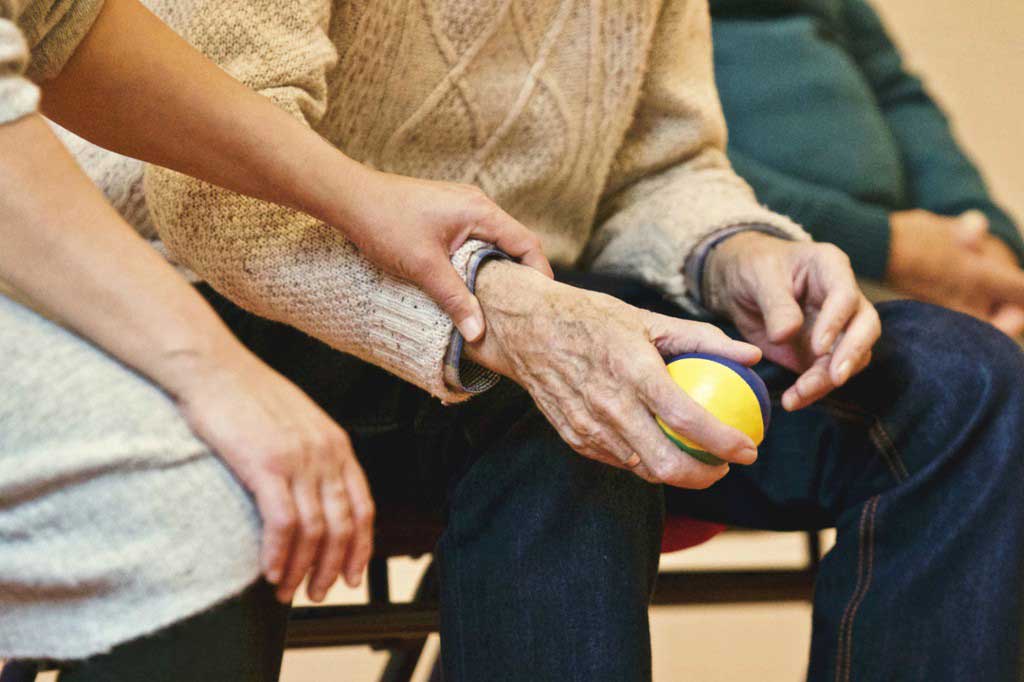News analysis: What is the Liverpool Care Pathway?
Older people
An independent review of the controversial palliative care practice known as the Liverpool Care Pathway (LCP) has been announced, many newspapers report...
Update, January 19 2015: this article was originally published in 2012 – the Liverpool Care Pathway was finally phased out in 2014.
An independent review of the controversial palliative care practice known as the Liverpool Care Pathway (LCP) has been announced, many newspapers report.
The LCP is intended to allow people with a terminal illness to die with dignity. But there have been a number of high-profile allegations that people have been placed on the LCP without consent or their friend’s or family’s knowledge.
Concerns have also been raised about hospitals receiving payments for increasing the number of patients who are placed on the LCP.
Care minister Norman Lamb is quoted as saying: "It is clear that everyone wants their loved ones' final hours of life to be as pain free and dignified as possible, and the Liverpool Care Pathway is an important part of achieving this aim."
"However, as we have seen, there have been too many cases where patients were put on the pathway without a proper explanation or their families being involved. This is simply unacceptable."
"Today I have committed to appoint an independent chair to review how end of life care is working and oversee the reviews into the LCP. This will report back to me in the new year. This review will also consider the value of locally set incentives, and whether they are leading to bad decisions or practice."
Daily Mail article on LCP ‘highly misleading’ says BMJ editor – update December 11 2012
The editor of the British Medical Journal (BMJ), Dr Fiona Godlee, has released a public letter to the Daily Mail claiming that it is "misleading readers by publishing a highly inaccurate article on the care of severely disabled newborn babies".
The Daily Mail’s front page story – Now sick babies go on death pathway: Doctor's haunting testimony reveals how children are put on end-of-life plan – was based on a piece from the 'personal view' section of the BMJ entitled How it feels to withdraw feeding from newborn babies.
In her letter Dr Godlee voices concern that the Mail's report did not reflect that the anonymous doctor who wrote the piece in the BMJ does not practise in the UK or in Europe. She highlights also that the doctor did not mention the Liverpool Care Pathway.
The Mail’s article included the following quote: "One doctor has admitted starving and dehydrating ten babies in the neonatal unit of one hospital alone". In fact, the doctor in question said that such situations were "very rare", having occurred 10 times in 13 years of practice in a large specialist hospital.
The doctor who wrote the BMJ article is quoted as saying: "To juxtapose the article with pictures of healthy babies misrepresents the clinical situation entirely. Some babies are born without intestines or with other abnormalities that make oral feeding physically impossible. Others have such catastrophic medical conditions that continued artificial hydration would only prolong the dying process. One would never undertake a decision to forgo artificial feeding if it could in any way benefit the child. Parents request cessation of this treatment, and the health team deliberates about this extensively before any action is taken, not the other way round."
What is the Liverpool Care Pathway?
The LCP was developed during the late 1990s at the Royal Liverpool University Hospital, in conjunction with the Marie Curie Palliative Care Institute. It was intended to provide the best quality of care possible for dying patients in the last hours and days of life, whether they were in hospital, at home, in a care home or in a hospice. It was widely seen as a way of transferring the model of “excellence” in the care provided in hospices to other healthcare settings such as hospitals and care homes.
The goal of the LCP is to ensure a death is as dignified and as peaceful as possible. It may involve, for example, reviews of:
- whether any further medications and tests (such as taking the patient’s temperature or blood pressure) would be helpful
- how to keep the patient as comfortable as possible, for example, by adjusting their position in bed or providing regular mouth care (some illnesses or treatments can cause over- or underproduction of saliva)
- whether fluids should be given, when a patient has stopped being able to eat or drink
- the patient’s spiritual or religious needs
According to the Marie Curie Palliative Care Institute, the LCP can “guide the delivery of care for the dying to complement the skill and expertise of the practitioner using it … the goals of care prompt staff to consider the continued need for invasive procedures and whether current medications really are conferring benefit”.
The LCP is recommended as a model of best practice by the Department of Health and has been adopted in many UK hospitals and other healthcare settings. Deborah Murphy, a national nurse lead for the LCP, calls it “a process that inspires, motivates and truly empowers the generic workforce in caring for the patient and their family in the last hours or days of life”.
Why was the Liverpool Care Pathway introduced?
The LCP was introduced because, during the 1990s, there was an increasing consensus in the UK medical community that standards of end-of-life care were patchy. Some hospices provided excellent treatment, but some hospitals did not meet the same standards. In particular, concerns were expressed about issues such as:
- patients being subjected to invasive testing and treatment that offered no chance of preventing death
- causing unnecessary pain and suffering by needlessly prolonging life
Why has it been controversial?
According to newspaper reports, several families have complained about use of the care pathway. Some relatives have claimed that their loved ones were put on the pathway without their consent and some have said it has hastened death in relatives who were not dying imminently. Critics say that it is impossible for doctors to predict when death is imminent, so the decision to put a patient on the pathway is at worst self-fulfilling.
It would be inappropriate to comment on individual cases. If there were failings, as has been alleged, it could be that these were the result of professionals not following the recommendations of the LCP, rather than faults with the LCP itself. For example, the LCP recommendations make it very clear that:
- while legal consent is not required to place a patient on the LCP, the fact that the plan is being considered should always be discussed with a relative or carer and, if possible, the patient themselves
- there should never be an occasion when a relative or carer who is named as the main contact is not informed when a diagnosis that the person is dying has been made
- withdrawal of nutrition and fluids should never be a routine option, but done only if it is felt to be in the best interests of the patient, judged on a case-by-case basis
The media has also reported that use of the pathway is being encouraged for financial reasons, linked to targets. The Daily Telegraph reports that almost two-thirds of NHS trusts using the LCP have received “payouts” totalling millions of pounds for hitting targets related to its use. While these financial incentives do exist, they are designed to support the implementation of better care. It is disappointing to see the level of cynicism in this story, with the unspoken – and hardly credible – implication that doctors and nurses would routinely hasten patients’ deaths so that their hospital would make money.
What about people who have survived the Liverpool Care Pathway?
There have been reports, including in the Daily Mail, that people have “survived” the Liverpool Care Pathway. It is cause for celebration that someone who was believed by health professionals to be dying has survived. Indeed, guidance for health workers on the LCP states: “Uncertainty is an integral part of dying. There are occasions when a patient who is thought to be dying lives longer than expected and vice versa. A second opinion or the support of a palliative care team may be required”.
What do health professionals think?
The LCP has been praised by many doctors for its aim to make life for those who are imminently dying as comfortable as possible, rather than using artificial efforts to prolong life. A recent article by a GP in the British Medical Journal argued that the pathway had "transformed" end-of-life care and offered a “good death” when used properly.
What does the Department of Health say?
The Independent reports that the Department of Health says that it doesn’t provide direct financial incentives for trusts to use the LCP. However, local areas may choose to have these in place.
A Department of Health spokesman told the Independent: “The LCP is supported by more than 20 leading organisations, including Marie Curie Cancer Care and Age UK, as a way to help meet the care and dignity needs for those who are at the end of their life.
“We are clear the LCP can only work if each patient is fully consulted, where this is feasible, and their family involved in all aspects of decision-making. Staff must properly communicate with the patient and their family – any failure to do so is unacceptable."
How can I have a say about my end of life care?
Those with a terminal illness or approaching the end of life may wish to think in advance about plans for the future of their care. This is sometimes called advance care planning and involves thinking and talking about your wishes about how you are cared for in your final months. Read more about planning for end of life care.
You can write down your wishes in what is called an ‘advance decision’, sometimes known as an advance decision to refuse treatment (ADRT) or a living will. This is a decision you can make now to refuse a specific type of treatment at some time in the future. It lets your family, carers and health professionals know whether you want to refuse specific treatments in the future. This is so that they will know your wishes if you are unable to make or communicate those decisions yourself.
If you have a relative who is terminally ill you should – where feasible – be consulted and kept informed about the plan of care, including use of the Liverpool Care Pathway. Health staff should also check with families that they understand the LCP.






 Subscribe
Subscribe Ask the doctor
Ask the doctor Rate this article
Rate this article Find products
Find products








